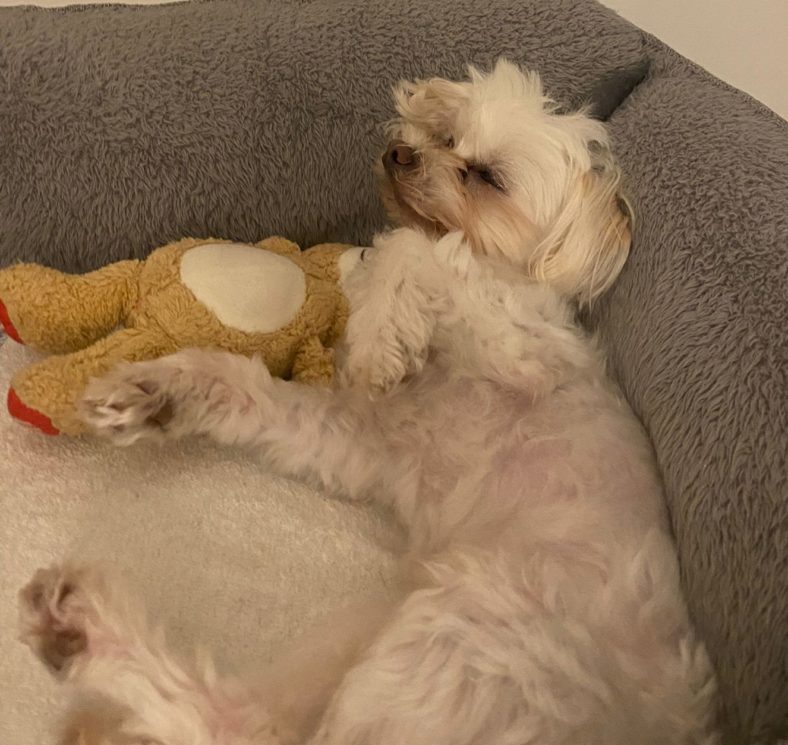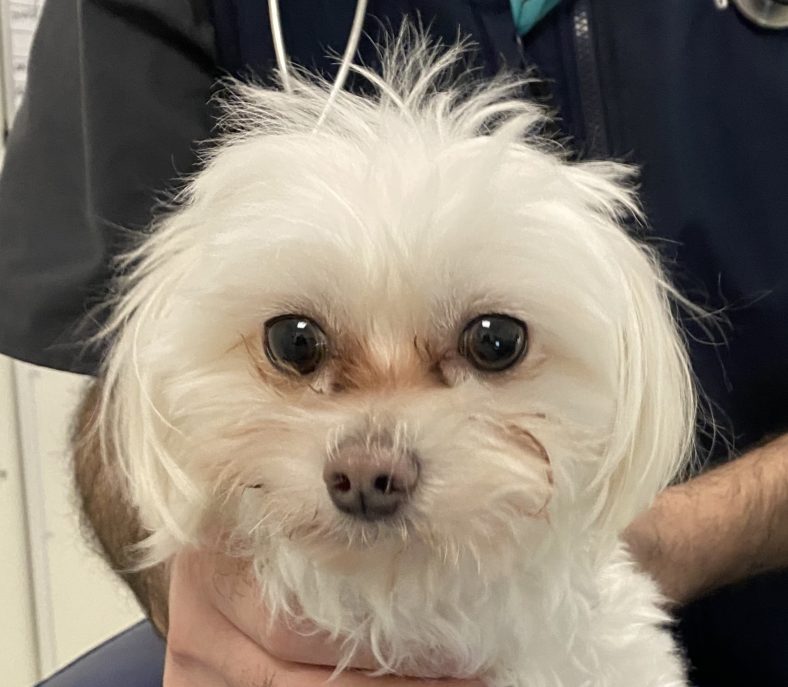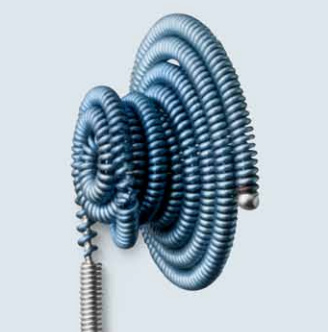Our Community
Frankie’s story

Since Frankie was a puppy, his daytime family practice had picked up a heart murmur at multiple appointments. In December 2021, they noticed it seemed to have become louder and more apparent. Three-year-old Frankie needed dental treatment, but there were concerns about the health of Frankie’s heart and if he would be able to undergo a general anaesthetic (which was needed for the dental procedure). Frankie was therefore referred to our Cardiology team to have his heart assessed and identify the cause of his heart murmur.
The Cardiology team performed an ultrasound scan of his heart (echocardiography) and diagnosed Frankie with a Patent Ductus Arteriosus. This is a congenital (meaning present since birth) heart condition usually diagnosed in the early stages of life. Unusually, Frankie was already three years old before his condition was diagnosed. Patent Ductus Arteriosus, or PDA for short, is a condition where the ductus arteriosus (a vessel that allows blood to bypass the puppy or kitten’s lungs when they are in the womb) fails to close after birth (the word “patent” simply means “open”).
Frankie wasn’t showing any outward clinical signs relating to his heart disease, except for the audible heart murmur. However, there were significant changes in the shape and size of his heart. If left untreated, PDA commonly causes a very enlarged heart over time and, eventually, the development of congestive heart failure (fluid in the lungs) which can be devastating and life-threatening.

A number of congenital cardiac diseases, including PDA, can be managed using a type of minimally-invasive procedure called Interventional Cardiology. During these procedures the heart and major vessels are accessed using catheters and guide wires, which are carefully inserted with the help of real-time X-ray imaging (called fluoroscopy) .
Interventional cardiology is our Cardiology team’s mainstay approach to the management of amenable heart conditions in our cardiac patients.
The recommended technique for the management of PDA is a minimally-invasive procedure using a specialised device known as the Amplatz Canine Duct Occluder (ACDO), which is placed inside the ductus (patent blood vessel). However, due to the size of the ACDO device itself, this technique is usually only possible in patients over approximately 4kg in weight who have large enough femoral arteries. Even though Frankie was fully grown, he weighed just over 2kg and his femoral artery was far too small.
In these cases, a surgical approach to ligate (tie-off) the ductus via open chest surgery is usually required. However, our Cardiology team offered Frankie’s family the option to pioneer a new, minimally-invasive occlusion technique using a human interventional-cardiology product, a spiral-coil device called the Nit-Occlud® PDA, which is suitable for use in very small patients, like Frankie:

Frankie’s family decided to go ahead. Frankie was given a full general anaesthetic under the care of our specialist anaesthesia team, and our cardiologists Luca Ferasin and Heidi Ferasin successfully performed the procedure to occlude (close) Frankie’s PDA. The procedure involved accessing the right side of Frankie’s heart by placing a catheter into the jugular vein in his neck. Using angiography and fluoroscopy, the Nit-Occlud device was passed through the jugular vein into the right side of the heart before being passed into the pulmonary artery and then correctly positioned across the PDA to close it. The device was deployed to remain in-situ for the remainder of Frankie’s life; check out the below video to see the device placed…
Frankie recovered quickly and remained comfortable after his procedure. He stayed in hospital overnight and was discharged the following day.
The Nit-Occlud technique offers a novel minimally-invasive approach to PDA occlusion in very small dogs and even cats. We are very proud to be one of the few centres in Europe offering this technique, and are delighted to be able to offer this option to small patients like Frankie.
Thanks for reading Frankie’s story. For more information about our Cardiology Service and team, be sure to check out the Cardiology page.
Take care,
Team Ralph 🐾
